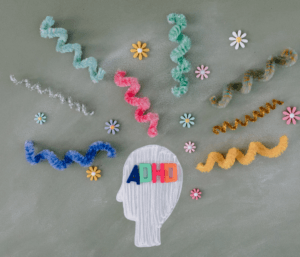Have you ever asked yourself why some people seem to be naturally wired for success while others just don’t, no matter how hard they try? The secret to it all isn’t luck or magic — it’s mindset and brain wiring. Yes, you read that right.
The process to rewire your brain for success and long-term growth is more than just a metaphor; it is a scientifically substantiated phenomenon based on neuroplasticity — your brain’s ability to adapt and reorganize itself. This knowledge helps you to develop habits and perspectives that support ongoing personal and professional growth.
You can teach your brain new tricks for success.
Neuroplasticity Defined: The Brain That Adapts
Neuroplasticity affords the brain an amazing gift – the capacity to evolve according to experiences both inner and outer. Our thoughts leave tangible traces, etching pathways that can lift us to unforeseen heights or confine us to familiar rut. With awareness of this profound malleability emerges possibility of purposeful change.
And it is because of an honest realization that requires embracing neuroplasticity, that this systematic effort can build permanent trails that guide the way to opportunity and accomplishment.
How to Rewire your Brain for Success: The Science Behind it
Through this process, you form and strengthen neural pathways linked to positive habits, while allowing those associated with negative behaviour, to decay. Every time you repeat an action or train a thought noes as electrodes are activated.
Each instance of activation makes these neural connections stronger, and the behaviour becomes automatic as time goes on. This principle serves as a reminder that maintaining congruency and clarity in our pursuits cultivates the habits which will yield success and improve us; all of which we strive for on the daily basis.
Simple and Practically Useful Ways to Train the Brain
There are specific strategies that can help accelerate the rewiring, making it easier to adopt new behaviours and mindsets that will help you succeed:
1. Embrace Continuous Learning
Learning something new or making a change also causes neurotransmitter activity in the brain and can facilitate anchored learning through cognitive flexibility. And, continuous learning challenges brings new pathways in terms of skill, language, hobby to the brain. Not only will you be exposed to different knowledge but you can also train your brain to be more adaptable to change.
2. Develop Mindfulness and Meditation Techniques
Neuroplasticity has been proven to be increased through mindfulness and meditation, which increase focus, emotional regulation, and self-awareness. Frequent practice can change the brain’s structure — increasing the amount of grey matter in regions associated with memory and learning. That produces more of a resilient growth-mindset mindset.
To read more about mindfulness techniques check out Mind-Waves’ Guide to Mindfulness.
3. Form and Sustain Good Habits
It can take time and a lot of practice to create some good habits. When you set concrete goals and routines that advance these pursuits, you strengthen the brain pathways that are associated with those actions. Instead, the overtime habits and behaviours maintain themselves and become a body of work that reinforce one another to create long term benefits.
Horse up good habits – To the end you may observe and visit to Explore Mind-Waves’ Habit Formation Strategies for practical tips.
4. Exercise has physical and mental benefits
By increasing the amount of blood flow to the brain, exercise stimulates the release of neurotrophic factors which promote the growth and connection of neurons. Physical activity has been associated with a better mood and cognitive function, as well as a lower risk of neurodegenerative diseases. Your brain becomes more malleable due to physical activity, according to a research published in Frontiers in Psychology, physical exercise enhances neuroplasticity, leading to better learning and memory outcomes Frontiers

5. Foster Social Connections
Developing and sustaining meaningful relationships has good effects on brain health. Social interactions activate the firing of the neurons and can trigger the release of mood-boosting and stress-reducing neurotransmitters. Exploring different social interactions further opens your eyes to other people, ideas, and thought processes, all of which are great food for cognitive flexibility. Studies show that a connected social circle is linked to reduced risk of cognitive decline.
Read More on trusted website Harvard Health
6. Prioritize Quality Sleep
Adequate sleep is crucial for both neuroplasticity and cognitive function. Your brain detoxifies poisons that build up throughout the day, and it consolidates memories when you sleep. Follow a sleep and provide a relaxing environment and you can improve your sleep quality and support general brain health. This Medical News Today article details how the two may be linked.
7. Train yourself to manage stress
Chronic stress impairs neuroplasticity and brain function. Practicing stress-relief techniques like deep breathing, progressive muscle relaxation, or hobbies can relieve stress. When you skilfully manage stress, you make space for neural growth, plasticity, and ability. Mindfulness and meditation are especially potent when it comes to reducing stress and cultivating neuroplasticity.
The Solution to the Rewiring Process

It will not be an easy process, but with perseverance, you will see results. It is usual to have a few bumps along the way. Acceptance that roadblocks are normal and having a growth disposition can reduce feelings of failure when obstacles are encountered. Every single choice you make strengthens the neural pathways that make you act a certain way and brings you one step closer to the destination you want to reach.
Rewiring the Brain: The Role of Visualization
That being said, you’re not going to live forever, and amid infinite psychology, visualization has its place. It activates the neural pathways that also fire when we live an experience in real life, reinforcing the connections needed for the desired behaviour. Visualization, done regularly, can boost motivation, performance, and help you get new habits going.
Using Technology and Resources Effectively
The world offers endless tools and resources to aid you in your thriving process. Mindfulness promoting Apps, cognitive training programs, and educational platforms provide structured guidance and feedback. To top it off, coaches or therapists can offer personalized advice that meets your specific circumstances and goals.
See for a curated list of resources check out Mind-Waves’ .
On Transforming Yourself One Page at a Time
Not only does the brain have an amazing capacity for growth and change, but it is also an empowering endeavour to rewire it for success and lasting growth. Cultivating intentional approaches to and deep commitment to continual improvement will create the neural pathways you need to manifest your vision.
So celebrate the process, go at a pace that suits you, because each little step forward confirms the ingenuity and adaptability of your brain.
Start The Process Of Re-Wiring Your Brain Today
To start changing your life, select one strategy out of this guide and try it this week. Be it investing in a personal growth project, introducing mindfulness practices into your schedule, or building an exercise routine, the way you get started will determine your path for the foreseeable future.
Be consistent, focus, and start rewiring your brain now..
Disclaimer:
This blog is for informational purposes only and does not offer medical or professional advice. Always consult a qualified expert before making health or lifestyle decisions.


I don’t even know how I ended up here, but I thought this post was great. I don’t know who you are but definitely you’re going to a famous blogger if you aren’t already 😉 Cheers!